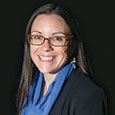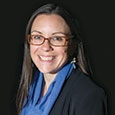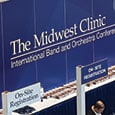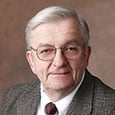Karl Siewertsen is the band director and Music Department Coordinator at Plainedge Middle School in Bethpage, New York. His 13 years of teaching experience includes work with string orchestra, concert and marching bands, and general music classes, as well as pit orchestra, jazz bands, and chamber ensembles.
Alexandria Hanessian is a middle school band teacher in a rural area of New York. She is a clarinet player and attended Ithaca College.
Joseph Phillips is Director (Supervisor) of Music for the Carmel Central School District (Patterson, New York) and Core Clinical Faculty in the School of Education at Manhattanville College (Purchase, New York).
David Brown is the K-12 District Supervisor for the Ithaca City Schools. He is currently the NYSSMA president elect. He previously was his district’s Business Administrator.
Neil Bryson is a high school choral teacher and his district’s K-12 Department Chairman. Bryson attended the Crane School of Music.
Jeffery Soper teaches band at a middle school in upstate New York on the Canadian border. He attended the Crane School of Music and is a trumpet player.
* * *
Mentors are an integral part of a music teacher’s journey. Mentors can take many forms – a colleague teaching in the room next to you, a music teacher across the district, an old college professor, colleagues in county or state organizations, or advice from a stranger writing in a magazine. I still reach out to my professors from college and high school, as well as current colleagues whom I know and trust. I seek out mentors to bounce ideas off of, to get feedback, or to provide reassurance.
Because every program is different, you may work in a district with ten music teachers or be the only music teacher for 100 miles. I asked a group of experienced music teachers and administrators to help answer some of questions on the minds of new and future teachers. These contributors have come from a variety of backgrounds and perspectives.
How should future directors make connections early on college and maintaining them after graduation?
K.S.: Attend conferences and recitals, offer help as best you can, and reach out for help whenever it could benefit you. Call people.
J.P.: Joining professional organizations, both during college and after, is essential. I believe that colleges should be doing more to develop partnerships with exemplary programs.
How can new teachers stay confident while hunting for a job in a competitive market?
J.P.: I wish I could be more optimistic here, especially in finding ideal positions. I recommend starting in urban schools where there is more opportunity for employment. I believe this is where I developed my skills in student motivation.
M.C.: Do not lose faith. Sometimes you have to accept a position that isn’t your dream job first to find the position you really want later. Get involved in local organizations, make connections, and build your resume.
This is my first year and I feel exhausted. Is there anything I can do to keep my energy up?
J.S.: Take time during the school day for just you. Be polite with students, but let them know that you are not available every minute of the day. Even 20 minutes alone can be refreshing.
N.B.: The first couple of years in teaching are the most difficult. As you build upon your teaching pedagogy you will feel more balance in your life. It is important to be involved in your school community, but always remember that your health and well-being are vitally important. Do not feel guilty for taking care of yourself. Involve yourself in an activity that leaves you feeling invigorated and refreshed and make time for it.
D.B.: Find time for you. This is exhausting and like nothing you have ever experienced. If you are not losing energy, you aren’t doing it right. That said, you still should want it to be Monday and feel excited to start the week. You cannot expect to be great at this the first time. You just got done student teaching, but it was probably in a well-established program. This job probably is more challenging. Expect to hit roadblocks. Ask for help. Going to your instructional leader and asking them come in and see if they can help you over a rough spot isn’t a cry for help. It shows you want to succeed.
J.P.: Be sure to balance your personal and professional lives. This career can be all encompassing if we let it be. I cannot stress enough the importance of making fitness a priority. It will enrich every other aspect of your life. I wish I believed this when I was in my 20s and 30s.
M.C.: As a new teacher I wanted to change the world. I ended up finding good colleagues to bounce ideas off of who talked me off the ledge more than once. They encouraged me, just like the other suggestions above, to take time for myself. For me, it was making time to go to the gym, and setting a time that I would leave school even if everything wasn’t done.
If there is a piece of advice that you wish someone gave you when you started teaching, what would it be?
J.S.: Have clear expectations and communicate them to your students. Keep your expectations high.
M.C.: Do not try to change everything at once. Programs are built over time, not overnight. It took me 13 years to get to the point where I was beginning to be happy with the way our beginning band curriculum was set up. It took trial and error with many failures as we tried to find the best approach for our situation. We still have not perfected it and probably never will. Allowing yourself to fail helps. Figuring out why you failed gives you the knowledge to build an even better program.
How do you develop a curriculum?
J.S.: A good curriculum combines lesson book materials, scales, and technique drills that best suit my students. I am constantly trying new things to create the best combination. As far as literature goes, I program at least one march, contemporary piece, transcription, classic, and ballad for concerts.
A.H.: Go to conferences, talk to people, and ask questions. Surround yourself with people who are better and more experienced, and glean what you can. Do not underestimate your ability to present a clinic on a topic you know well. Contributing to the field can help build connections in a big way.
N.B.: Determine what already exists. Consider any district and music department initiatives. With your colleagues, identify the appropriate exit outcomes for each grade level from commencement to pre-k. Set high expectations and know that a curriculum is a living document that changes over time.
D.B.: Read and research. Today is a wonderful day for curriculum. Google can help you find excelsior curricula. Ask for help from successful colleagues. Too many music teachers think they are fine without a curriculum. We need it as a roadmap for success. Then, spend a good amount of time writing lesson plans that work with the curriculum.






